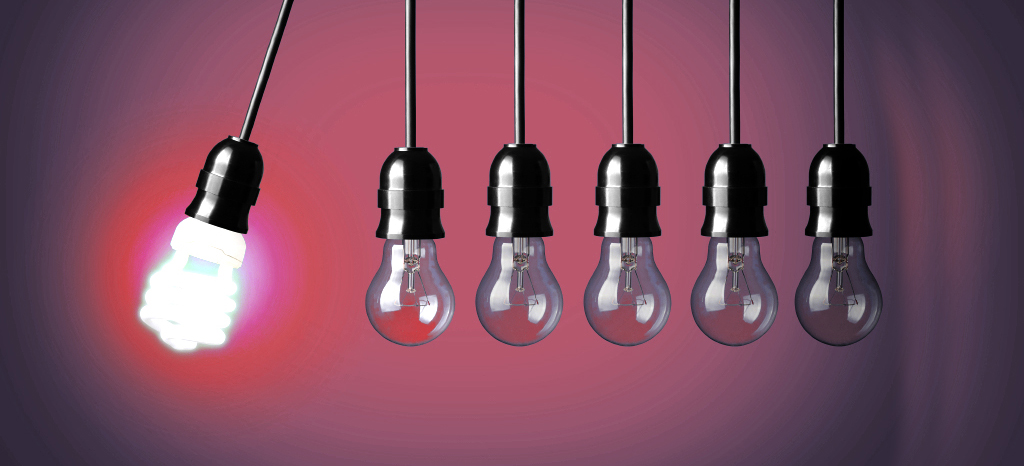Energy savings Tips
Here is a simple list of energy savings tips that could trim your energy use.
- Install Dimmer Switches in your home– this helps you to use as much light as needed.
- LED Lighting – switch most widely used bulbs in your home to LED. Replace the rest as they burn out. LED bulbs use about 90 % less energy than regular bulbs.
- Wash Laundry in Cold water – For additional energy savings in your home wash laundry in cold water. About 90 % of energy usage in washing machines goes to heating water.
- Full Load Laundry and Dishwasher – You can maximize energy savings by only doing full load laundry and dishwashing. Laundry and dishwasher machines use lot electricity.
- Cheaper electricity at Off Peak Hours – If your electrical utility offers times of use electricity rates then take advantage of doing your laundry and dishes during the off perk hours.
- Line Dry Laundry – consider line drying your laundry on your backyard instead of using the dryer machine. If this is not an option consider using drying rack or the shower rod to dry your clothes.
- Clean Dryer Filter – cleaning dryer lint trap after every use maximizes dryer’s efficiency. Remove all the lint and then scrub it with soapy water.
- Dryer Balls – using dryer balls can speed up the drying process and reducing energy consumption.
- Phantom Loads – 75% of energy is used by home electronics when they are turned off. These users are called “Phantom users” and include: TV, computers, laptops, stereo and many kitchen appliances. Consider plugging your electronics into a power strip and then get the habit of tuning it off between the uses.
- Use microwave instead of oven – Microwaves use less heat than ovens and take faster to heat and cook food.
- Don’t preheat the oven – For many foods preheating the over is not necessary, so don’t preheat unless you have to.
- Turn Oven earlier – turn your stove and oven few minutes before your cooking time is done as the built up heat will finish the cooking for you.
- Use Lids when cooking – heat can’t escape with the lid on and food cooks faster.
- Keep Freezer and Fridge Full – food acts as an insulation so decreases the time that refrigerator and freezer need to run to stay cool
- Don’t put uncovered or hot food in the fridge – condensation and heat from hot and uncovered food created condensation and makes your fridge work harder.
- Clean Fridge Coil – when your fridge coil gets dirty it make you appliance to work harder, clean it every 3-6 months for better operation and savings.
- Install Energy Efficient Shower Heads – low flow shower heads will have less water flowing through the shower head meaning less water heating.
- Schedule Annual HVAC Maintenance – scheduling annual maintenance increases the efficiency of your heating and cooling system bringing you energy savings and you get a cleaner air in your home as an added bonus.
- Change Furnace Filter Regularly – Changing your furnace filter every 30-90 days keeps your heating and cooling system running at its peak efficiency.
- Keep blinds closed – closing your curtains and blinds in your home during the sunny days cuts down on the air conditioning use. Installing tinted windows can also add to the energy savings.
- Install Ceiling and Attic Fans – this reduces use of an air conditioning and cools down the air in your home. Keep the ceiling fans circulating so your AC won’t have to work as hard.
- Install Programmable Thermostat – Set thermostat to run heating and cooling equipment less when you are at work and sleeping.
- Lower Temperature on your Hot Water Heater– about 15 % of your energy goes towards heating the water in your home, so setting water tank temperature to 130-140 degrees will add decrease energy consumption.
- Get Water Heater Timer – timer can help you set temperature on your water heater to a desired degree and run it just when you need it. You can expect to see 5-12% decrease in your water heater’s energy costs
- Insulate water heater or install new energy efficient model – you can purchase insulated jacket for your hot water heater or install energy efficient model that come with high density foam insulation to better store heat. Draining your water heater of sediment twice a year as sediment build up can reduce the efficiency of heating element.
- Install Tankless Water heater on demand –Tankless units can cut your water heating energy costs by about half. Consider upgrading to tankless water heater on demand for additional energy savings.
- Upgrade to Energy Efficient Appliances – whether it is HVAC heating and cooling equipment or other appliances in your home consider replicating them with new Energy Star models if they are 10 years old or older. New Energy Efficient appliances use considerably less energy.
- Proper Home Insulation – ensure your home is properly insulated
- Install Storm Doors – Storm doors help from heat loss in your home, installing one on all your exterior doors will prevent energy loss.
- Use solar light outside – using solar lights for your outside needs helps them absorb the sun during the day and run for free at night, saving you energy even while you sleep.
For more energy savings tips contact MyFixRate and we will be happy to assist you.
Fixed Price Energy
Canada Locations
Albertasoon
British Columbiasoon
Manitobasoon
Ontario
Quebecsoon
Saskatchewansoon


 (Rated 4.81 out of 5)
(Rated 4.81 out of 5)